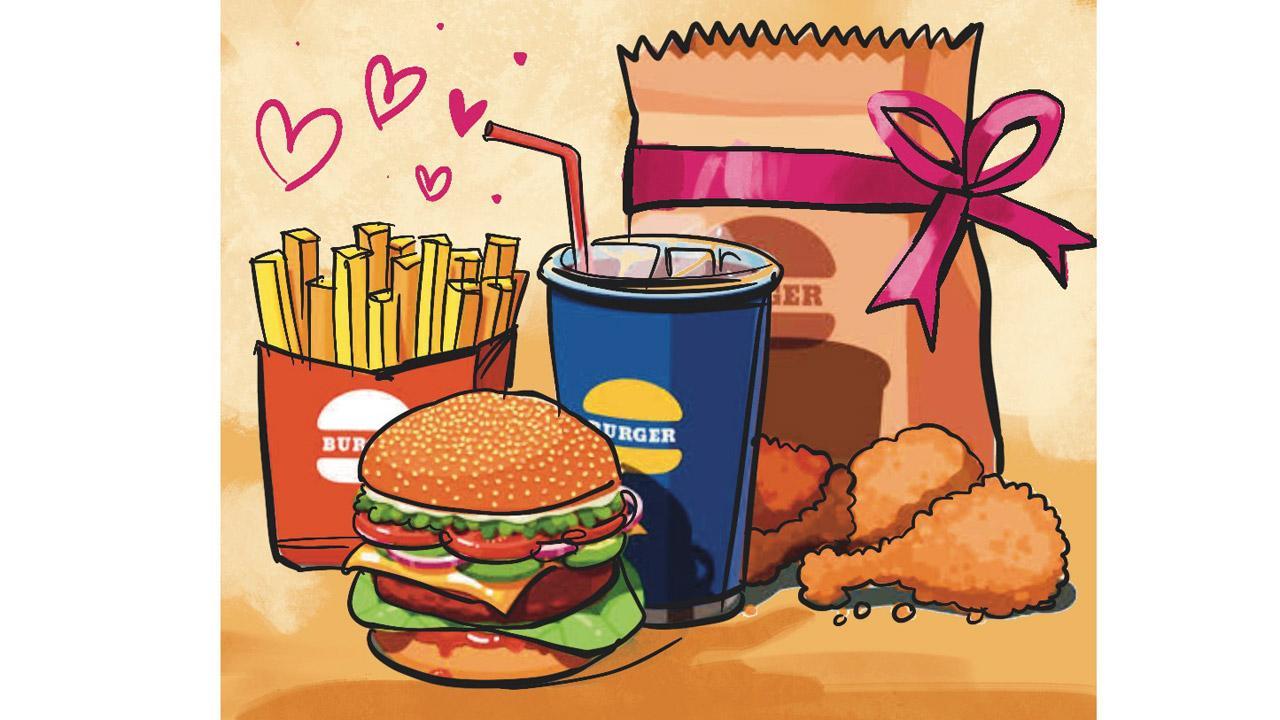I called my friend Bela and demanded that she cook for me. She arrived with a full meal, in many boxes

Illustration/Uday Mohite
What is love?” Like Haddaway, I like to ask this question often, because each time it turns up a different answer.
ADVERTISEMENT
Like most, I had Covid, and the misery and detention it brings. My friend Samina, visiting from Delhi, also fell sick while at our friend Parvati’s house. Recovered, she came to my place to pick up her bags—bearing a box of biscuits and sandwiches—ham and cheese, snug with butter, trimmed with care—from Parvati. It’s not that I didn’t have food. But it’s not about practicality. I ate it in bed, like a child eats at a picnic. It reminded me of how, when I had measles as a little girl, my dad arranged dinner on a fancy tray, like in a hotel, with two sips of Coca-Cola in a beautiful purple glass, the best Coca-Cola I’ve ever had.
I called my friend Bela and demanded that she cook for me. She arrived with a full meal, in many boxes. Two days later, my friend Kabi called. Her COVID misery like mine was lingering too long. We discussed how, as single women, we often didn’t rest as much as we need. I felt overwhelmed by a desire to do something for her, though in practical terms, she was cared for. “I won’t say no,” she replied when I asked if I should send her some bone broth. I think that bone broth comforted and nourished us both, even if only one ate it. It’s not a big deal, a small meal. But it feels rich, like that tight, warm squeeze of hands, when we meet people we like after a long time.
That night my doorbell rang. My friend Sankalp’s nephew stood, with pink hair, holding aloft a bag with a pink bow (not making up the pink bit). “Uncle has sent you cake.” I slept feeling as replete as a full circle, even though I had not yet eaten the cake.
There are many words for love because love is not one thing, standing to attention in designated relationship-locations. Laad is the word for this love I describe above. We use it most commonly to talk about the indulgence of kids by elders. But, in fact, laad exists in all relationships, alongside friendship, caring, desire, yearning, collegiality. It signals love’s capacity to exceed boundaries and defy categorisation—we give and receive laad, because we are all each other’s children in a way, our vulnerabilities cherished by those who love us, our fragilities cradled in their compassion. Families have always been very extended.
Love is about plenitude, not just enough, not efficient and ‘reasonable’, but lots, like the butter in Parvati’s sandwiches or the slow, plentiful heat in the mutton currey my friend Ruchir makes when you visit him. In Rabbi Shergill’s best song—Tere Bin—he searches for someone “chuke jo nakhra mera”—who will indulge my unreasonableness. Asking for laad is recognising other people’s capacity for generosity and love. Receiving it is to honour love and show your belief in it. Flowing only in one direction, it certainly becomes ‘spoilt’. In fluid exchange it nourishes and satiates us, a perfectly leavened bread. We are in lonely times, they say. Perhaps we are too keen to define love in conventional terms when in fact it exists in our lives in so many forms, waiting to be eaten.
Paromita Vohra is an award-winning Mumbai-based filmmaker, writer and curator working with fiction and non-fiction. Reach her at paromita.vohra@mid-day.com
 Subscribe today by clicking the link and stay updated with the latest news!" Click here!
Subscribe today by clicking the link and stay updated with the latest news!" Click here!







